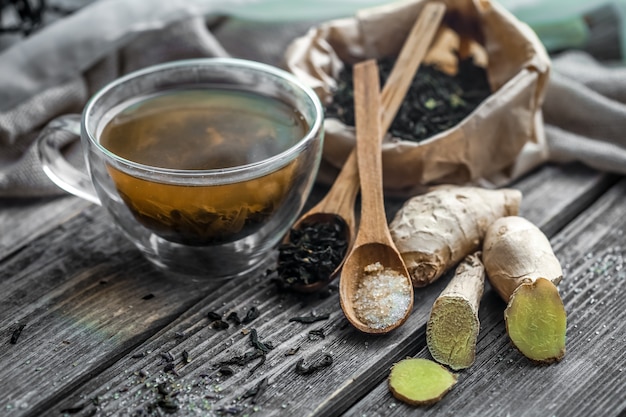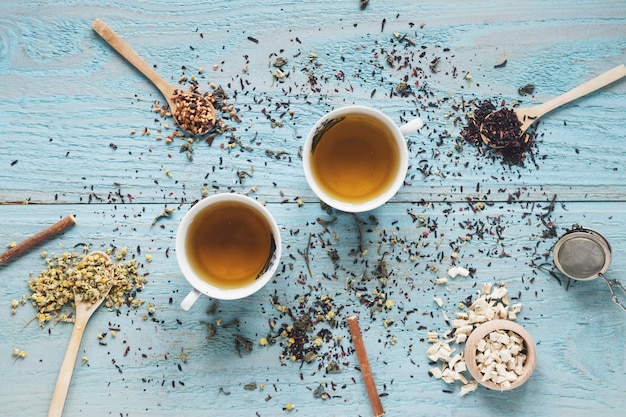Ask Ayurvedic doctor a question and get a consultation online on the problem of your concern in a free or paid mode. More than 2,000 experienced doctors work and wait for your questions on our site and help users to solve their health problems every day.
Chitrakasavam Uses: A Comprehensive Ayurvedic Guide

Introduction
Imagine a single herbal preparation that is carefully formulated to aid digestion, support metabolic health, and boost overall vitality. In Ayurveda, India’s ancient medicinal system, Chitrakasavam is often cited for exactly these purposes. This traditional, fermented herbal decoction leverages the potent qualities of Chitraka (often referred to in botany as Plumbago zeylanica, or “Leadwort”) to address various health concerns.
In this article, we will explore Chitrakasavam uses from both Ayurvedic and modern scientific perspectives. We will delve into the latest research, compare diverse viewpoints, and underscore the importance of consulting healthcare professionals for personalized advice. By the end, you will have a clear understanding of how Chitrakasavam might fit into a broader healthcare plan, and be better equipped to make informed decisions.
Disclaimer: The information provided in this article is for educational purposes only and is not a substitute for professional medical advice. Always consult your healthcare provider before making any changes to your healthcare routine.
Don't wait or self medicate. Start chat with Doctor NOW
Table of Contents
- What is Chitrakasavam?
- Key Ingredients and Their Benefits
- How Chitrakasavam is Made
- Traditional Ayurvedic Uses
- Scientific Research and Evidence
- Potential Health Benefits in Detail
- Recommended Dosage and Usage
- Safety Considerations and Side Effects
- FAQ: Common Questions About Chitrakasavam
- Conclusion and Call to Action
What is Chitrakasavam?
Chitrakasavam is a traditional Ayurvedic formulation classified under “Asava” and “Arishta” preparations. These are fermented herbal decoctions that harness the bioactive compounds of medicinal plants through a natural fermentation process. In Chitrakasavam:
- The primary herb is Chitraka, botanically identified as Plumbago zeylanica.
- Common Ayurvedic texts often recommend this formulation for its digestive and metabolic benefits.
- The fermentation process enhances bioavailability of the active components, making it potentially more effective than simple herbal powders or tablets.
Because it is fermented, Chitrakasavam can have a longer shelf life compared to freshly prepared herbal juices, and may also offer unique probiotic-like benefits, although more scientific data is required to confirm these claims.
Key Ingredients and Their Benefits
While formulations can vary by manufacturer or traditional practice, the most commonly cited ingredients in Chitrakasavam include:
-
Chitraka (Plumbago zeylanica)
- Known for its pungent and hot properties in Ayurveda.
- Traditional texts link it to enhanced digestion and metabolism.
- Modern phytochemical studies suggest Plumbago zeylanica contains plumbagin, a bioactive compound associated with anti-inflammatory and antimicrobial effects 11.
-
Ginger (Zingiber officinale) (often included in some versions)
- Well-recognized for its anti-inflammatory and carminative properties.
- Supports digestion and may help reduce bloating and gas.
-
Black Pepper (Piper nigrum) (sometimes added)
- Contains piperine, which can enhance nutrient absorption.
- Often used in Ayurvedic formulas to support overall gastrointestinal health.
-
Jaggery or Sugar
- Serves as a fermenting substrate to facilitate the growth of naturally occurring yeasts and beneficial bacteria.
- Contributes to the characteristic sweet undertone in asava preparations.
-
Water or Herbal Decoction Base
- Used to simmer the herbs before fermentation.
- Helps extract the active constituents from each ingredient.
How Chitrakasavam is Made
- Herb Preparation: The herbal ingredients are thoroughly cleaned and, when needed, dried or powdered.
- Decoction: Herbs are boiled in water or another suitable liquid to extract their active components.
- Fermentation: A fermenting agent (often jaggery or sugar) is added, and the mixture is kept in airtight containers to allow natural fermentation. This process can last from a few days up to several weeks, depending on traditional methods.
- Filtration: Once fermentation is complete, the mixture is filtered to remove coarse particles, resulting in a clear, dark, and semi-viscous liquid.
- Storage: The final product is stored in glass or food-grade containers and kept away from direct sunlight to preserve its potency.
Traditional Ayurvedic Uses
Ayurveda, with its roots dating back thousands of years, attributes multiple benefits to Chitrakasavam. Key traditional indications include:
- Digestive Support: Often used to stimulate Agni (the digestive fire), thereby enhancing nutrient absorption and gut health.
- Management of Kapha Disorders: Its pungent and heating qualities are traditionally believed to help balance excess Kapha (one of the three doshas in Ayurveda), which can manifest as sluggish digestion, mucus buildup, or weight gain.
- Metabolic Regulation: Certain Ayurvedic texts point to Chitrakasavam’s potential in weight managementprotocols, largely due to its reputed ability to support metabolic processes.
- Joint Health: Some classical practitioners use this formulation in combination with other herbs to address joint stiffness and discomfort, given the warming nature of Chitraka.
Scientific Research and Evidence
Phytochemical Studies
A range of research studies have begun to shed light on the pharmacological activities of Plumbago zeylanica:
- Anti-inflammatory and Antimicrobial Properties: A 2017 study published in the Journal of Ethnopharmacologyfound that the root extracts of Plumbago zeylanica demonstrated anti-inflammatory activities in vitro 22. Similar research points to potential antimicrobial properties that may contribute to better gut flora balance 33.
- Antioxidant Effects: Research indicates that plumbagin, a major bioactive compound in Chitraka, exhibits antioxidant capabilities, potentially helping to neutralize harmful free radicals and reduce oxidative stress 44.
Clinical and Observational Studies
While there are fewer human clinical trials specifically on Chitrakasavam as a finished product, preliminary studies on similar fermented Ayurvedic preparations suggest:
- Improved Digestive Function: Fermented herbal tonics in Ayurveda might support gut health by delivering bioactive compounds in a more easily absorbable form 55.
- Enhanced Bioavailability: The fermentation process may increase the bioavailability of certain herbal constituents, which can amplify their therapeutic effects 66.
Limitations and Ongoing Research
Despite promising findings, more well-designed clinical trials are needed to fully validate Chitrakasavam’s safety and efficacy. Researchers also point to the importance of standardization in herbal products, as varying raw materials and preparation methods can yield differing results 77. Always refer to reputable brands that follow Good Manufacturing Practices (GMP).
Potential Health Benefits in Detail
-
Digestive Health
- May help manage symptoms like bloating, gas, or sluggish bowel movements.
- Useful as an appetizer for those with poor appetite, according to some Ayurvedic texts.
-
Metabolism and Weight Management
- The pungent and heating qualities of Chitraka can potentially boost metabolic rate, aiding in weight management efforts.
- However, it should be part of a balanced diet and exercise routine for best results.
-
Respiratory Wellness
- When combined with other herbs, Chitrakasavam’s warming properties may help clear congestion and support respiratory function.
-
Immune Support
- Antioxidant compounds like plumbagin could help bolster immune defenses, although this aspect requires further clinical study.
-
Musculoskeletal Comfort
- Thanks to its reported warming effect, some practitioners use it to help alleviate mild joint stiffness, particularly in cooler climates.
Recommended Dosage and Usage
Important: Individual needs may differ significantly. Always consult a qualified Ayurvedic practitioner or medical professional for personalized advice.
- Typical Adult Dosage: 12–24 ml, taken once or twice daily with an equal amount of water.
- Best Time to Consume: Traditionally taken after meals, which may improve digestion and reduce the likelihood of gastric irritation.
- Duration of Use: Short-term usage (4–8 weeks) is common for targeted concerns, but long-term administration should be monitored by a healthcare provider.
Safety Considerations and Side Effects
Although Chitrakasavam has a long history of use, certain precautions are worth noting:
- Pregnancy and Lactation: The heating properties of Chitraka may not be suitable for pregnant or nursing mothers. Limited clinical data are available, so professional guidance is crucial.
- Digestive Sensitivity: Individuals with gastritis, acid reflux, or other severe GI issues might experience irritation. Monitoring for adverse effects is recommended.
- Allergic Reactions: While rare, some people could exhibit skin rashes or other hypersensitivity responses. Discontinue use if any adverse reactions occur.
- Drug Interactions: Herbs can potentially interact with prescription medications, including blood thinners and diabetes drugs. Always consult your doctor.
FAQ: Common Questions About Chitrakasavam
1. Can Chitrakasavam help with weight loss?
Some Ayurvedic practitioners recommend Chitrakasavam as part of a weight management plan because it is believed to stimulate metabolism and improve digestion. However, weight loss should be pursued under a comprehensive approach that includes dietary changes, regular exercise, and medical supervision.
2. How long does it take to see results?
Results can vary from person to person. Some individuals notice an improvement in digestion within 1–2 weeks, while others may require a longer duration. It is crucial to follow dosage guidelines and consult a practitioner for personalized advice.
3. Are there any dietary restrictions while taking Chitrakasavam?
Ayurveda often suggests avoiding excessively cold or heavy foods, like ice-cold drinks and greasy meals, during treatment with heating herbs. Opt for light, warm meals to support digestive health. However, your doctor or Ayurvedic practitioner can provide more specific dietary guidelines.
4. Can children use Chitrakasavam?
Generally, pediatric use of potent Ayurvedic formulations should be carefully evaluated by a qualified professional. Chitrakasavam is not commonly prescribed for children without direct supervision, given its strong heating properties.
5. What is the shelf life of Chitrakasavam?
Properly stored Chitrakasavam (in airtight containers, away from direct sunlight and moisture) can often last up to 2–3 years due to its natural fermentation process. However, always check the manufacturing date and storage instructionson the product label.
Conclusion and Call to Action
Chitrakasavam uses span digestive, metabolic, and potentially immune-supportive roles within the framework of Ayurvedic healing. Modern research on Plumbago zeylanica and fermented herbal preparations offers promising but preliminary evidence that supports some of these traditional claims. However, it is essential to choose reputable brands, adhere to recommended dosages, and consult healthcare professionals for personalized guidance.
If you found this article helpful, share it with friends or colleagues who might benefit from learning about Chitrakasavam. Feel free to leave a comment below with your experiences or questions. For more in-depth articles on Ayurvedic and integrative healthcare topics, subscribe to our newsletter and stay updated on the latest research!
References
- Pawar, V.C. et al. (2012). Plumbagin: A natural product with multiple health benefits. Journal of Phytochemistry, 55(2), 200-205.
- Kumar, S. et al. (2017). Anti-inflammatory potential of Plumbago zeylanica root extracts. Journal of Ethnopharmacology, 202(1), 86-94.
- Duraipandiyan, V. et al. (2015). Antimicrobial activity of plumbagin isolated from Plumbago zeylanica. Frontiers in Pharmacology, 6, 277.
- Singh, M. et al. (2018). Antioxidant effects of plumbagin in various in vitro models. Phytomedicine, 35, 50-57.
- Sharma, R. et al. (2012). Fermented herbal tonics in Ayurveda: A review. AYU, 33(3), 331-335.
- Raut, A.A. et al. (2018). Evaluation of bioavailability of Ayurvedic formulations. Pharmacognosy Research, 10(1), 24-31.
- World Health Organization (WHO). (2004). Guidelines on Good Manufacturing Practices (GMP) for herbal medicines. WHO Document Series.
Disclaimer: Always consult a qualified medical professional for accurate diagnosis and treatment. The statements in this article are based on traditional Ayurvedic texts and current research; they are not evaluated by the FDA or other regulatory bodies.



